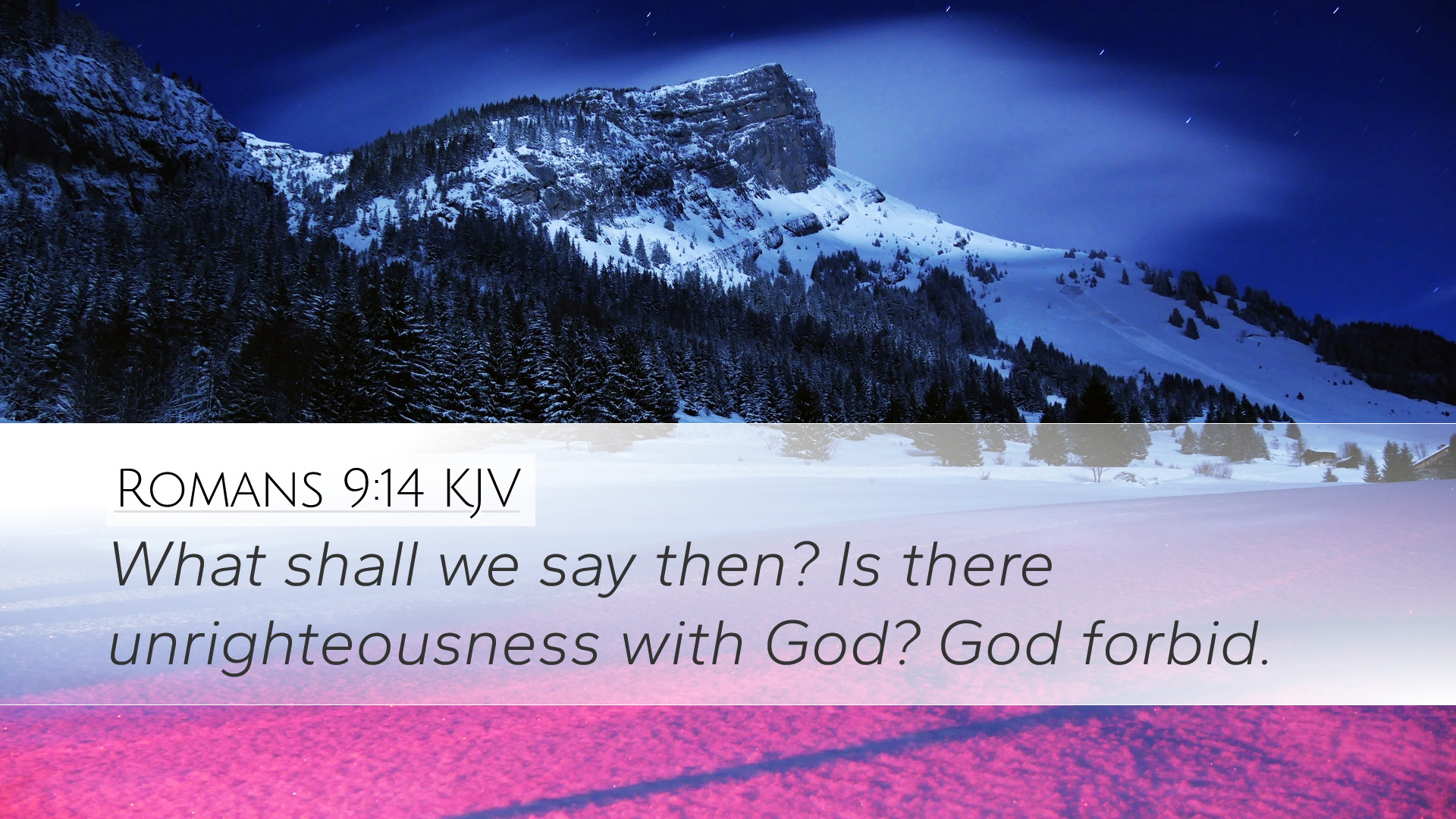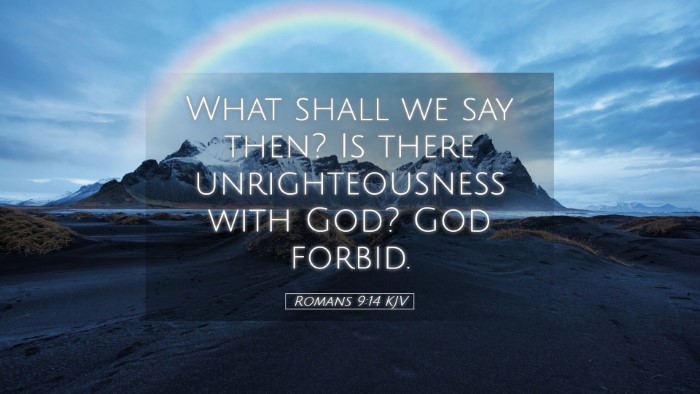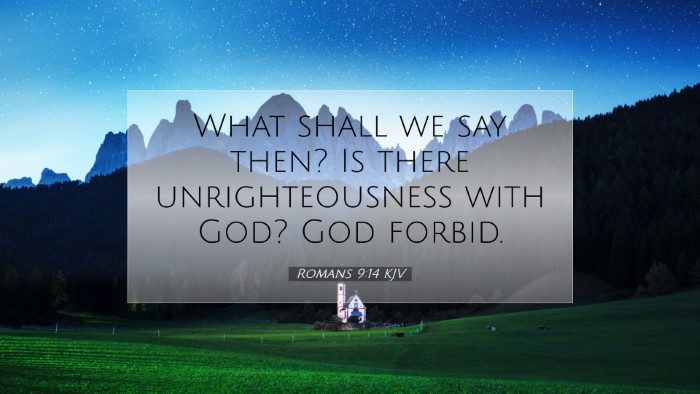Commentary on Romans 9:14
Romans 9:14 states: "What shall we say then? Is there unrighteousness with God? God forbid." This verse introduces a critical discussion in the larger context of God's sovereignty, His divine election, and human responsibility.
Introduction
This verse raises essential questions regarding God's justice and righteousness, particularly in relation to the doctrines of election and predestination. It serves as a crucial pivot in Paul's argument concerning the Israelites' rejection of the gospel and the inclusion of the Gentiles into God's covenant people.
Contextual Analysis
In Romans 9, Paul addresses the sorrow he feels for his fellow Israelites, questioning why many of them have turned away from the gospel. He explores the concept of divine election, using Old Testament references to exemplify God's sovereign choice.
The Problem of Perceived Injustice
The question posed in Romans 9:14 reflects a concern about God's fairness in choosing some while seemingly rejecting others. Here, Paul anticipates the objections of his readers, who may struggle with the notion that God could act in ways that appear unjust.
Insights from Public Domain Commentaries
Matthew Henry
Matthew Henry emphasizes that the inquiry regarding God's justice is rooted in a misunderstanding of divine sovereignty. He writes that God's ways are not comparable to human understanding, and therefore, any perceived injustice arises from our limited viewpoint. God's election is not partiality but rather part of His divine purpose that reflects His wisdom and love.
Albert Barnes
Albert Barnes elaborates on the phrase "God forbid", indicating a strong denial of such accusations against God. He argues that God's methods and dealings with humanity must be understood in the broader context of His overall plan of salvation. Barnes insists that God's choices do not violate moral law or fairness but are executed in harmony with His sovereign will. He points to the historical and theological implications of God choosing individuals and nations for specific purposes without detracting from His righteousness.
Adam Clarke
Adam Clarke provides insight by discussing the nature of God's righteousness in relation to mercy and judgment. He posits that God's actions are consistent with His character, and what may seem like injustice is, in truth, a demonstration of His grace and mercy towards those He chooses to save. Clarke asserts that understanding divine election requires a recognition of God's holiness and justice, asserting that no one can question God's decisions as they arise from an eternal perspective of wisdom.
Theological Implications
- God's Sovereignty: The verse asserts that God, by nature, operates within a framework that transcends human justice, affirming that His actions are inherently good and just.
- Human Responsibility: While God sovereignly elects, humanity is also held responsible for their response to God's revelation. This tension between divine sovereignty and human agency is crucial in understanding the nature of salvation.
- The Nature of Grace: The discussion highlights the unmerited nature of God's grace, indicating that election does not stem from human merit but from God's sovereign will.
Applications for Ministry
This passage and its commentary provide several key applications for pastors, students, theologians, and scholars:
- Pastoral Care: Understanding the doctrine of election will enhance pastoral counseling, particularly when addressing feelings of inadequacy or doubt about God's love and choices.
- Teaching Integrity: When preaching or teaching, the balance between God's sovereignty and human responsibility provides a fuller picture of the gospel, allowing for clarity in doctrinal instruction.
- Encouragement in Evangelism: Recognizing that God is working sovereignly in hearts encourages believers to share the gospel with confidence, knowing that salvation rests in God's hands.
Conclusion
Romans 9:14 invites deep reflection on God's righteousness and justice. This verse, alongside the insights from commentators such as Henry, Barnes, and Clarke, helps us grapple with profound theological truths. In the exploration of God’s sovereign election, we are reminded that His ways are above ours and that ultimately, His plans for humanity reflect an unfathomable depth of wisdom and love.


